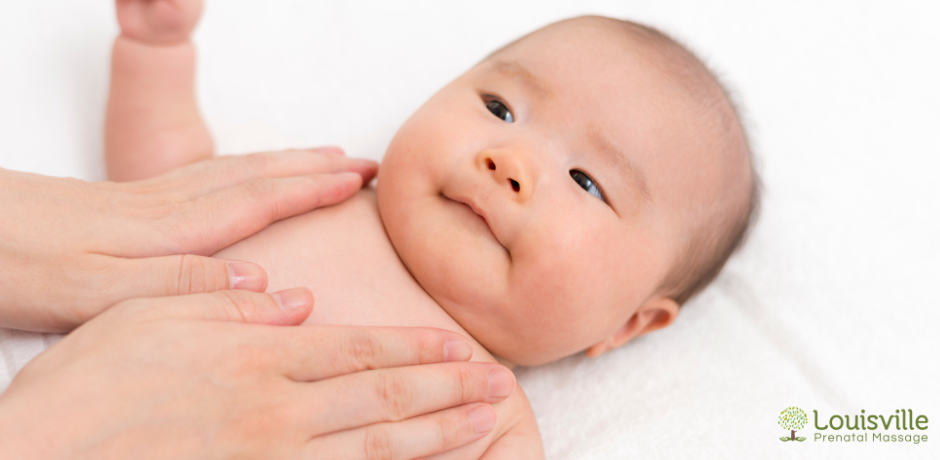How Massage Can Improve Maternal Mental Health
- Samantha Davis, LMT, CNMT

- May 3, 2024
- 3 min read

May is Maternal Mental Health Month, so I wanted to take a moment to share some of the facts around Pre- and Perinatal Mood Disorders (PPMD), and how massage can help.
Disclaimer: Mental health is incredibly important to your overall health. Massage therapy is meant to be a form of adjunctive healthcare. Meaning, if you feel like something's just not quite right, reach out to a therapist certified in Pre- and Perinatal Mental Health. Therapeutic touch, and massage therapy can be powerful components in your overall mental health support system!
Maternal Mental Health Facts:
In many countries, as many as 1 in 5 new mothers experiences some type of perinatal mood and anxiety disorder (PMADs). These illnesses frequently go unnoticed and untreated, often with tragic and long-term consequences to both mother and child.
Estimates are that 7 in 10 women hide or downplay their symptoms. Without understanding, support, and treatment these mental illnesses have a devastating impact on the women affected and on their partners and families.
No one is immune! Women of every culture, age, income level and race can develop perinatal mood and anxiety disorders. Symptoms can appear any time during pregnancy and the first 12 months after childbirth. There are effective and well-researched treatment options available to help women recover.
How Massage Therapy Can Help:
Massage is an effective tool which is proven to provide a boost in self-esteem, boost in endorphins and hormones which act as a balm to prevent stress hormones from binding, and helps bring the nervous system into a "rest and digest" state, essential for a resilient nervous system. All of these physiological benefits of massage therapy help to benefit mental health. Specific situations around childbearing years require specific sensitivity, working with a Certified Prenatal Massage Therapist can help you have peace of mind that your unique concerns and life stage will be taken into consideration with a deep awareness, and non-judgemental, affirming care.
Pre-Conception:
Fertility and trying to conceive (TTC) can be stressful. Massage therapy is proven to reduce stress. Working with a massage therapist certified in prenatal massage can also give you peace of mind during waiting weeks, or even into the first trimester.
Coping with Loss:
Pregnancy loss affects as many as 1 in 4 pregnancies. Some of this statistic is due to the early pregnancy tests that are now widely available. Massage with a Certified Prenatal & Postpartum Massage Therapist is a safe way to help your body recover, and an effective way to help process grief over your loss, and the accompanying stress.
During Pregnancy:
According to a study by NIH: Depression affects about 20% of women during their lifetime, with pregnancy being a period of high vulnerability. Depression during pregnancy is not only the strongest risk factor for post-natal depression but can also lead to adverse obstetric outcomes. Prenatal massage encompasses helping clients address their whole self, not just their physical aches and pains. If you're having a tough day, tough week, or tough pregnancy, share this information with your massage therapist. We can address the unique concerns that come up throughout your pregnancy, including anxiety, to help you have the healthiest pregnancy possible! We also maintain a list of therapists specializing in Pre- and Perinatal Mental Health who are accepting new clients, so you can skip the hours on Google.
Postpartum:
Postpartum Depression affects as many as 1 in 5 women in the first year after birth. Massage therapy can be a powerful way to feel good in your body again after pregnancy and birth. It can help address the aches and pains associated with breastfeeding and care of a newborn baby. Perhaps most importantly, this care is available as soon as you want after birth, while you may not see your OBGYN for 6 weeks. Having support for you and your healing earlier in your postpartum recovery can make a big difference. You are not alone, you are cared for.
Infant Massage:
Providing massage to your baby can help to facilitate bonding and attachment. It releases the love and safety hormone Oxytocin in both baby and you. It can help soothe and calm a baby who is fussy, gassy, or inconsolable. It can help baby (and you) get more sleep. For all of these reasons, infant massage is protective and preventive care for postpartum depression. Learning infant massage in a group workshop style class also provides you with a parent support group who is going through the same things you are, and can help you feel validated and less alone.
In closing: you are NOT ALONE! Share your feelings with someone who is trained in supporting you through Fertility, Prenatally, and Postpartum. All of these professionals can help guide you to the resources that can help you heal.
Sources cited in this post:





Comments